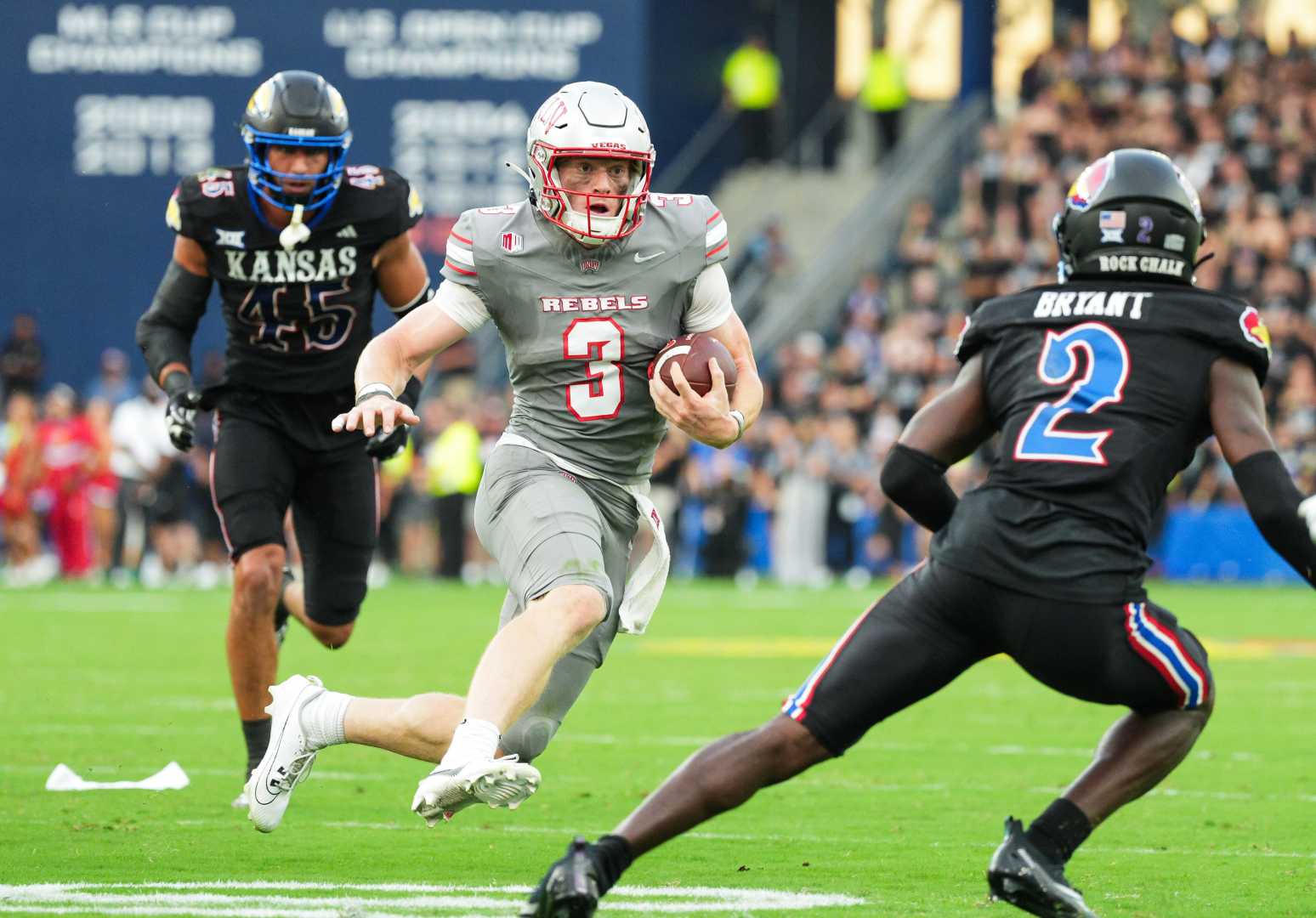News
UNLV Quarterback to Redshirt Amid NIL Dispute

A promising start to the University of Nevada, Las Vegas (UNLV) Rebels’ football season has been overshadowed by their starting quarterback’s decision to sit out the rest of the year. The quarterback, a transfer from Holy Cross, cited unfulfilled promises related to his Name, Image, and Likeness (NIL) compensation as the reason for his departure.
The player, who transferred to UNLV after a successful stint at Holy Cross, was expected to be a significant contributor to the Rebels’ season. Standing 6-foot-3 and weighing 215 pounds, he was a three-year starter and two-time finalist for the prestigious Walter Payton Award during his time in the Football Championship Subdivision (FCS).
According to a statement made to ESPN, the player’s NIL representative, Marcus Cromartie of Equity Sports, asserted that the quarterback was promised a minimum of $100,000 in compensation by a UNLV coach but received only $3,000. The player’s father corroborated this claim, adding that the arrangement was verbal and no formal contract was drafted with the school’s collective.
UNLV responded by stating that the demands made by the player’s representatives were deemed a violation of NCAA rules and Nevada state law concerning pay-for-play. UNLV also claimed that it does not engage in activities that contravene these rules.
The issue represents a broader challenge in collegiate sports regarding the implementation and management of NIL agreements. These agreements, which allow college athletes to earn money, often lack clear regulations, leading to disputes and misunderstandings. The current situation at UNLV reflects ongoing tensions as schools, athletes, and collectives navigate this relatively new terrain in college sports.
Rob Sine of Blueprint Sports, which manages UNLV’s collective, stated that there was no written agreement to pay the player $100,000. Sine acknowledged that the player received a single $3,000 payment.
Despite the conflict, the player aims to preserve his collegiate eligibility by using a redshirt season. He can enter the transfer portal in December once NCAA regulations permit it. This move would allow him to seek opportunities elsewhere while potentially playing another season in 2025.
UNLV, under the guidance of coach Barry Odom, who led the team to a 3-0 start, now faces the challenge of continuing their promising season without their starting quarterback. The team will rely on backup options as they seek a berth in the expanded College Football Playoff.
The incident highlights the complex landscape of NIL agreements in college athletics—an environment marked by the absence of binding contracts and clear oversight. As college football progresses, the situation underscores the need for clarity and regulation to ensure that both athletes and institutions can engage in fair and transparent agreements.












